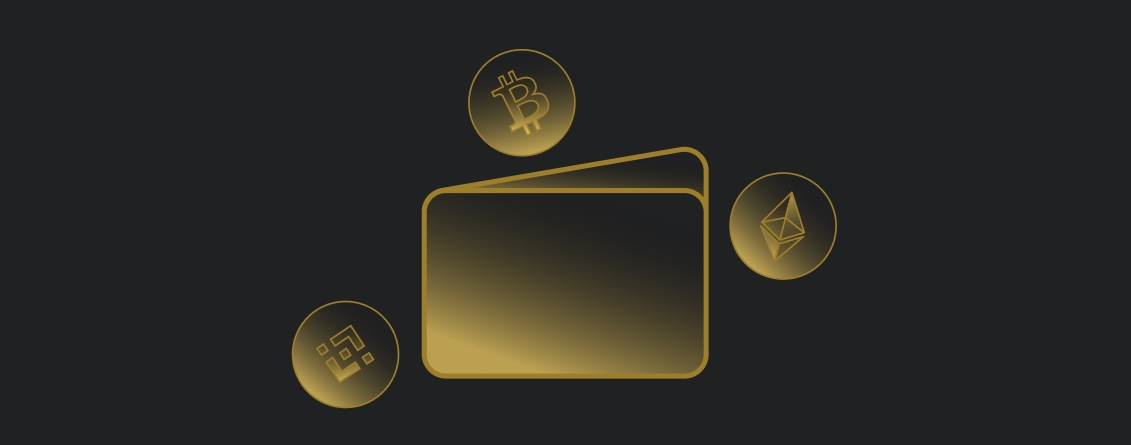
By: Zeneca
A crypto wallet is like a digital account where you store and manage your cryptocurrencies, such as Bitcoin, Ethereum, or other digital assets. It helps you send, receive, and keep track of your cryptocurrency balances, similar to how you use a physical wallet to hold cash, cards, or IDs.
Here’s a simple way to understand a crypto wallet:
Here’s a simple way to understand a crypto wallet:
- Each wallet has a unique public address (known as a public key), this is like an email address. This address is what you share with others when you want to receive cryptocurrency from them.
- Each wallet also has a unique private address (private key), this is like the password to the email account. To send cryptocurrency to someone else, you’ll use your wallet to create a transaction, which needs to be signed with a secret code called a private key. This private key is like a digital signature / password that proves you’re the owner of the wallet.
- Each private key is an extremely long string of letters and numbers, to make it virtually impossible to crack. Because of this, developers created something called a seed phrase which is a list of 12-24 common words that offer an alternative way to access your private key. Your seed phrase, and private key, are effectively the same – the password to your account. You should protect them.
- Crypto wallets come in different forms, such as software wallets (apps on your phone or computer), hardware wallets (physical devices that store your keys securely), and paper wallets (printed versions of your keys).
- It’s essential to keep your private key safe and secret. If someone gets access to your private key, they can take your cryptocurrency. On the other hand, if you lose your private key, you won’t be able to access your cryptocurrency.
Another way to look at it is that a crypto wallet stores two keys:
- A public key links to an address that lets you send and receive transactions.
- A private key proves that you own the assets associated with your address.
- A seed phrase is 12-24 words that let you access your private key.

Another analogy is that if your wallet was your bank account, your public key would be your account number, and your private key would be your PIN. Of course, in web3, your assets are on the blockchain vs. in a bank. Just remember that:
You can share your public key with others to send and receive transactions.e
You must never(!!) share your private key or seed phrase with anyone.
Which wallet should I get?
There are several types of crypto wallets, each with different levels of security, accessibility, and ease of use. Here are the main types:
- Software Wallets: These are applications that you can install on your computer, smartphone, or tablet. These are known as hot wallets because they are more susceptible to being hacked if your device becomes compromised.
- Hardware Wallets: These are physical devices, like USB drives or specialized gadgets, that securely store your private keys offline. They are more secure than software wallets, as they are not constantly connected to the internet, which reduces the risk of hacks. To perform transactions, you need to connect the device to a computer or smartphone. These are known as cold wallets.
- Paper Wallets: These are physical printouts of your private and public keys. Paper wallets are a secure way to store your cryptocurrencies offline, but they can be damaged or lost, so it’s crucial to keep them in a safe place and create backups. These are also known as cold wallets.
- Custodial Wallets: These wallets are managed by a third-party service, like a crypto trading platform or a dedicated wallet provider, which holds your private keys on your behalf. They can be convenient, especially for beginners, but they can also be less secure, as you rely on the provider to protect your funds. See the email on Day 3 for a list of crypto trading platforms that will act as custodial wallet services.

A good strategy is to start with a hot wallet for convenience, then move your long-term assets to a cold wallet.
Popular hot wallets include MetaMask, Rainbow, and Coinbase Wallet. You can install these as browser extensions.
Popular cold wallet devices include Trezor and Ledger. The cost of buying a cold wallet ($60-150 USD) is generally worth it to keep your assets more secure.
Whichever way you go, during set-up, you will be asked to write down your seed phrase. If you recall, this represents your private key. You will then also see your public address which is like your email address or bank account number, and something you can share with others.
This is an example of an Ethereum Public Address: 0x886478D3cf9581B624CB35b5446693Fc8A58B787.
In our next email, we’ll cover: “How to avoid scams?”



